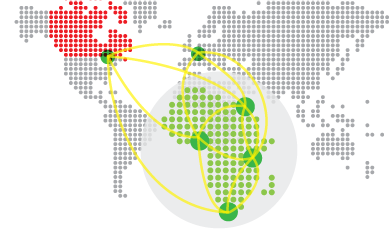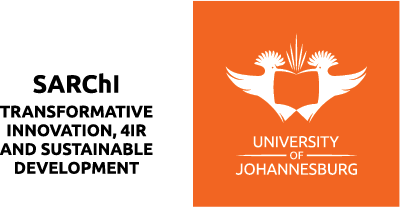

Our goal is to actively promote access to knowledge, and inclusive development in the Middle East and Africa by becoming a knowledge hub for research on the different dimensions, interactions, and intersections pertaining to access to knowledge, technology and inclusive development in the region.
We engage in interdisciplinary research through collaborations and partnerships with leading global and regional institutions on the role of knowledge, openness and digital technologies in promoting human development Through research, dissemination and global engagement, we bring local issues to the forefront of global development debates.

The Centre for Intellectual Property and Information Technology Law (CIPIT) is a think Tank and Training Centre established under the Strathmore Law School. Launched in 2012, the Centre focuses on evidence-based research and training on Intellectual property, information technology law and policy. The Centre’s research projects also extend to ICT and Media Law and Cybersecurity regulation. We have partnered with various institutions around in the world to collaboratively achieve its objectives.
Our Mission is to study, create, and share knowledge on the development of intellectual property and information technology, especially as they contribute to African Law and Human Rights.

The Nigerian Institute of Advanced Legal Studies is Nigeria’s apex Institution for research and advanced studies in law. It was a brainchild of the legal academic community established in March 1979. One of the main ideas in founding the Institute was to establish it as the centre for advanced legal research for all the Nigerian universities with Faculties of Law, so that all postgraduate work could be undertaken there under the joint auspices of the most experienced and learned academic lawyers available in the country, whether indigenous or foreign.

UCT’s Intellectual Property Unit strives to add an African voice to the global debate on IP-related issues. Our focus is on examining the link between IP, innovation, development and public policy, taking into account the needs of society, rights owners and consumers.
Our vision is to be a leading voice in realising a continent where there is an open exchange about African ideas, creativity and innovation, in pursuit of sustainable development. We promote research, teaching, and learning in IP through holistic, balanced and open approaches, in order to stimulate innovation that drives development. Our core values are integrity, inclusiveness and relevance. We believe that South Africa has a leadership role in defining IP challenges in emerging and developing countries. We develop our programs through dialogue, research, debate and capacity building.

The Faculty of Financial and Economic Sciences joined with the Faculty of Management to form the College of Business and Economics (CBE). The FEFS Departments are now in various Schools in the CBE: the School of Accounting, the School of Economics, and the Johannesburg Business School now has the Department of Financial and Investment Management.
Within the CBE is the South African Research Chair in Industrial Development, funded by the Department of Science and Technology (DST), administered by the National Research Foundation (NRF) and hosted at the University of Johannesburg (UJ).
The South African Research Chair in Industrial Development is a university-based research programme in the field of industrial development. Our main activities are research and capacity building (especially the training of graduate students).
Examples of issues which our researchers and students are currently working on include: value chains in southern Africa; various aspects of deindustrialisation; structural change in South Africa; innovation; testing Kaldor’s laws; the effects of trade liberalisation on distribution in South Africa; the relationship between manufacturing and inequality internationally; and determinants of the spatial location of South African manufacturing firms.

The University of Ottawa Centre for Law, Technology and Society is Canada’s leading research hub for law, ethics and policy surrounding technology, gathering, in an interdisciplinary setting, 24 full-time Faculty members from the Faculties of Law, Social Sciences, Arts, and Engineering, and more than 100 researchers and students.
Founded in 2009, the Centre is a unique cluster, home to four Canada Research Chairs in the law, ethics and policy of technology, two Social Sciences and Humanities Research Council of Canada-funded Partnership Grants related to privacy, access to justice, equity, inclusion, innovation and development in the digital age. Hugely involved policy making, in Canada and world-widely, the Centre is also the home of the Samuelson-Glushko Canadian Internet Policy and Public Interest Clinic, a unique legal clinic – first and only Canadian public interest technology law clinic – that has been defending the digital rights and freedom of expression since 2003.
Our members have presented and published their research, for diverse audiences, in Canada and all over the world. They appear almost every day in local, national and international news outlet, notably to ensure a better dissemination of academic research and a greater impact for the Canadian society.




